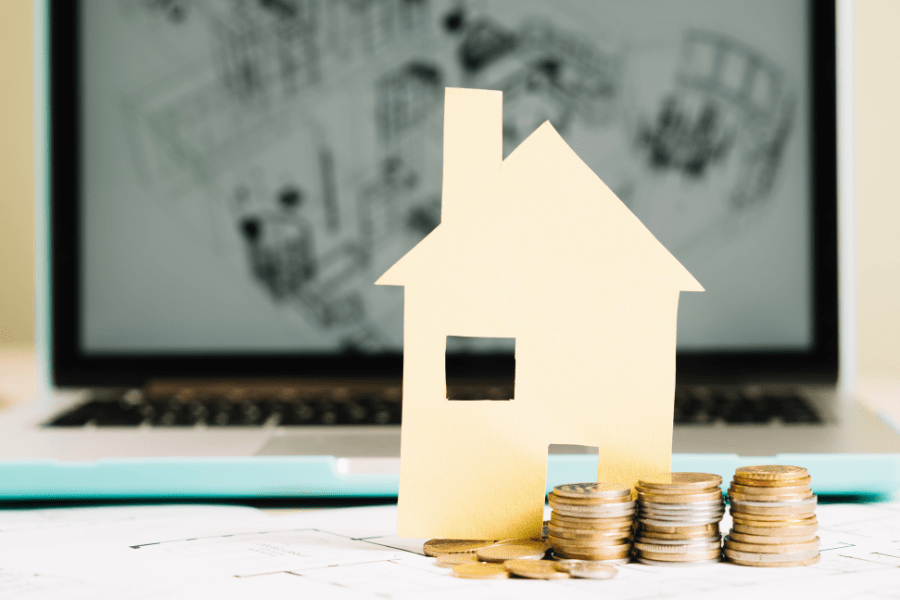One of the largest and most significant financial investments you can make is buying residential real estate. This is why it’s crucial to take into account all elements that can affect value appreciation and hence alter the price of real estate. Investors or interested buyers are interested in buying properties that can provide substantial profits when they are resold because real estate is also one of the most reliable and secure investments.
Why does property appreciate over time? because there are other factors that influence your property’s value more than the popularity of top-notch architectural styles and the interior design of your home, despite the importance of both. Real estate agents typically base their pricing determinations mostly on the size and location of a property, especially if it is a luxury home.
The state of the property and its proximity to important establishments are just two more aspects that may have an impact on its property prices or cost and the appreciation of its value. When searching for homes or real estate investment to invest in, real estate appreciation is important since it might suggest the profit you can make when you buy or sell properties on the market.
What exactly is value appreciation?
Price appreciation in real estate refers to the worth of your home and how it rises over time. When making real estate investments, you should think about how much they will increase in value and the variables that can have an impact. When you take into account the variables that may affect property appreciation, you can increase it and exert control over it. When you sell the property when demand is strong but supply is low, your potential future profit can increase.
What variables affect the increase in value of your property?
Make sure to invest in Asterra real estate to increase the value of your property. Some of the most sought-after properties on the local market are those they have to offer.
Below are some of the various factors that influence real estate property appreciation and might answer to your questions on why does property appreciate over time.
1. Property Location
First on the list of important factors that influence real estate property appreciation is location. One of the most critical elements impacting value appreciation is location. Most potential buyers take the location into account initially when searching for a real estate property to buy.
The location of a property affects how much it will appreciate. Property located in an area that has experienced development will be worth more than property located in an area that has not. A property’s market value will be high and will continue to rise in the future if it is close to well-known locations and is situated in an area with both necessary and luxurious amenities.
Choose a home located in a favorable location” is a popular piece of real estate advice you’ll hear. The value of a condo or house can be raised by factors like good schools, parks, stores, and accessibility to major roads and expressways.
Properties located in certain places are appealing because those locations are in great demand. Properties in these areas are regarded as premium and have a high likelihood of increasing in value over time.
Price appreciation may also be influenced by upcoming local infrastructure, such as public infrastructures or retail establishments.
Location is paramount in real estate. Therefore, location should be the top factor taken into account by anyone who is considering buying a home or any other type of property in the near future.
2. Neighborhood or Community
Second, why does property appreciate over time? is because of the neighborhood or community. The area or community is crucial for prospective buyers and more buyers are seeking real estate property, making it one of the most important price appreciation variables available. The majority of consumers or property investors prefer serene, private neighborhoods where they may go about their daily lives in safety, open spaces, and peace. When looking for the ideal home, security is of the utmost importance, especially for those with families.
3. Accessibility
The third factor that influence real estate property appreciation is its accessibility. The proximity of your property to important buildings like hospitals, markets, schools, municipal halls, shopping malls, and even tourist attractions can have a significant impact on its higher value or higher demand. The most sought-after properties are those that are constructed in prestigious locations and have easy access to significant transportation networks.
In the real estate industry, accessibility of a residence can also be one of the key factors that refer to the availability of several forms of public transport facilities. It’s crucial to have easy access to transit to and from your home, especially if you’re looking for homes close to your place of employment or your kids’ school.
4. Amenities
The fourth factor that influence real estate property appreciation is its amenities. In comparison to properties that lack proper electric connections, telephone lines, water and sewer facilities, and other infrastructure like community centers, children’s parks, swimming pools, gymnasiums, parking lots, or general stores, properties with better infrastructure and modern amenities are valued at a higher price. Property values are obviously predicated on the accessibility of amenities and essentials associated with pleasant living.
5. Infrastructures
The fifth reason why does property appreciate over time is because of its new infrastructure. A location’s property value may rise as a result of additional infrastructure. The construction of new facilities in a community, such as hospitals, gyms, shopping mall, parks, etc., can boost the value of nearby properties.
Over time, a large population growth has been seen in the number of people purchasing homes and residing in residential estates. One of the main factors influencing people to buy homes and live in estates is safety and security.
6. Age and Condition
Sixth, why does property appreciate over time? Because of its age and condition. Well-kept and in excellent shape properties are likely to be worth more, especially if you plan to sell them again. One of the several factors that may affect a property’s price appreciation is its age. Since they haven’t been occupied for very long, newly constructed homes typically appreciate in value more quickly than older homes.
However, there are some properties that, despite being older, can appreciate in value, particularly if they have a long history. You can always get in touch with Asterra to find the house of your dreams if you’re seeking newly constructed real estate.
7. Structure
Seventh, structure can also be one of the many factors that influence real estate property appreciation. The specifications of the materials used, the layout, the design, the longevity of the building, and its life cycle all affect how much a piece of property is worth. The cost of building materials, their quality and cost, size, labor costs today, frontage, and other physical structure or characteristics like roof covering, building height, foundation type, waterproofing, and plinth level all have an impact on how much a property costs.
8. Property Size and Usable Space
Eight of the factors that influence real estate property appreciation are property size and usable space. Your property’s size, both the lot size and the amount of usable space, is a crucial component in determining how much it will increase in value and, ultimately, how much it will cost. Using the size of the lot, real estate agents can determine the value of your property. Your property’s price will increase proportionately to its size.
Nevertheless, since they can also raise the value of your property, it’s more crucial to identify the usable places, such as bedrooms and baths.
9. Supply and Demand
Ninth, why does property appreciate over time? Because of supply and demand. Prices of properties in a certain area, whether developed or underdeveloped, are inevitably going to rise when there is an increasing demand for those assets. When a home is in high demand and appealing, people are willing to pay more for it. When real estate investing activity hasn’t fully started, a real estate investor should decide to buy. When there is a low supply and a strong demand, you purchase the property and resell it.
A property’s value is greatly impacted by market conditions. The value will rise if there are few available properties in a neighborhood and there is great demand for them. In the same way, if there is little demand in the area but there are alternative homes available, the price will also decrease.
In any situation, finding properties with steady demand is a terrific way for investors to weather economic downturns.
An area’s supply of real estate and demand for it are inversely related. Real estate is valued higher as there is less of it available to buy. The main forces driving demand are shifts in the population. A location’s attractiveness as a place where people wish to live also drives up the cost of that location in addition to the number of people living there.
10. Home Features and Upgrades
The tenth factors that influence real estate property appreciation is its modern features and upgrades. A property is valued by home appraisers according to its condition. The value of your home rises if the building’s structure is well-maintained and attractive to the eye. Be diligent about upkeep as a property owner to boost the value of your home.
The features of a home are one of the most significant value-added aspects that can affect the cost of real estate. Because they also improve the quality of life within a home, contemporary additions like automation systems can raise a home’s value.
The value of a property may also be impacted by improvements to the interior design or by lavish or distinctive features.
11. Renovations and Development Potential
Eleventh, another reason why does property appreciate over time is because of renovations and its development potential. Renovations to real estate properties can also increase their value on the local market. If the property has improved in terms of both appearance and functionality, this is even more true.
Make sure you renovate any property you intend to place on the market if you want to raise the value of your house. The plumbing, electrical system, and roof, among other things, all need to be repaired or replaced.
Renovations frequently alter a property’s features, which might increase its allure to potential purchasers. Additionally, the likelihood that a property may be improved or developed further in the future influences price growth.
12. Affordability
Additional to factors that influence real estate property appreciation are based on its affordability. The expense incurred by the owner in order to use or maintain a property is referred to as affordability. It is the phrase that identifies a connection between interest rates, home prices, and salaries. When one or more of the three aforementioned factors reaches its peak in a certain location, the locals begin to search for a higher quality of life elsewhere.
13. Market and Economic Factors
Lastly, why does property appreciate over time? It is also because of the market and economic growth.
Property appreciation is influenced by a nation’s economy as well. When a nation’s economy is strong, people are able to find productive employment and have a reliable source of income to invest in real estate. However, many people find it difficult to make housing or mortgage payments during a recession. Property values may be lowered as a result.
The state of the economy and the market have a significant impact on a property’s value. One of the key value-appreciation elements that affects real estate prices is supply and demand. Additionally, the value of a real estate property may be impacted by market fluctuations brought on by the economy’s constant change.
However, the home value might also change as a result of other economic issues. Although the real estate market has historically been stable, it has the potential to expand in the future as a result of increased demand, which will drive up prices. Interest rates have an impact on value growth as well because it depends on the present inventory of properties in the local market.





